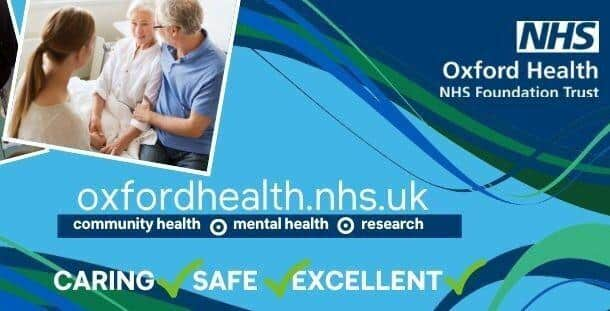Service for autistic people with eating disorders in Oxfordshire is 'groundbreaking'
and live on Freeview channel 276
Autistic people are much more likely than neurotypical people to develop an eating disorder and autistic people are much more likely to have poorer health outcomes and experiences.
• Approximately a third of young people seeking treatment for an eating disorder are autistic
Advertisement
Hide AdAdvertisement
Hide Ad• Often mental health difficulties present first and autism is recognised later, especially in girls


• Approximately 35 per cent of adults who are admitted to hospital for inpatient care for an eating disorder score highly on screening measures for autism
• About 1 per cent of people in the general population are autistic.
The Oxfordshire service means the eating disorder provision has has been recognised as supporting and caring for autistic people in a way which supports and respects their individual needs. It follows a period of evaluation and assessment in late 2023 and work with mental health professionals is underway, to raise awareness and support earlier identification of co-occurring eating disorders and autism.
Advertisement
Hide AdAdvertisement
Hide AdNow the life-changing BOB PEACE service – the Buckinghamshire, Oxfordshire and Berkshire (BOB) Pathway for Eating disorders and Autism developed from Clinical Experience (PEACE) - has been accredited by NAS, alongside Child and Adolescent Mental Health Services (CAMHS) eating disorder services in the three counties.
The PEACE team works directly with CAMHS professionals to promote awareness and tailored support for autistic and possibly autistic youngsters with eating disorders under CAMHS care.
They also work directly with a small number of children and young people and families.
PEACE has been developed in partnership with local autistic young people who have experienced an eating disorder, along with their families, carers and mental health professionals. It is guided by the latest research.
Advertisement
Hide AdAdvertisement
Hide AdThe service also supports teams to make reasonable adjustments to communication and treatment. Many young people are already benefitting from a better experience of care and improved outcomes.
Dr Rob Bale, Consultant Psychiatrist at Oxford Health (OH) NHS Foundation Trust, said: “Making sure our eating disorder services recognise and meet the needs of autistic children and young people is key to providing inclusive care which supports people in the way they need.
"The NAS accreditation has enabled us to review our approach within a recognised framework, identify best practice and put in place steps for continued improvement.
"We know improving and developing services and support for autistic people is a priority locally and nationally, and will build on this benchmark as we strive to provide and advocate for services and contribute to a community which is inclusive and autistic-affirming.”
Advertisement
Hide AdAdvertisement
Hide AdOH Clinical Lead for PEACE and Consultant Clinical Psychologist, Dr Jo Holliday said autistic children and young people and families have been key to the co-production of the PEACE service and securing the accreditation.
She said: “Accreditation from NAS means young autistic people and families can be confident in the PEACE service’s neuro-affirming approach to supporting people in the way that works for them and their autistic experience.
"We have worked with NAS to improve understanding and promote inclusive treatment for young people with co-existing eating disorders and autism. The accreditation has been awarded in recognition of our good practice in supporting autistic young people and they are thrilled to share this success.”